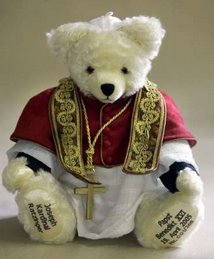 They are at it again! It's awesome!
They are at it again! It's awesome!Last night Tony Abbott launched the new edition of The Heart of James McAuley by Peter Coleman last night in Canberra. (It's published by my mate at Connor Court). He used the speech to reminise on the days of Catholic Action in Australia - the time of BA Santamaria and McAuley. And then to have a go at Kevin "I'm a Christian too" Rudd. Reports on the speech are in most of the National broadsheets today but you can read some exerts below or the full text here.
James McAuley was all too familiar with the interaction of religion and politics. In the mid-1950s, he was drawn to the work of BA Santamaria whose commitment to Catholic Action had led to a campaign against communism in the trade union movement. In largely defeating the communist union leadership, Santamaria’s Industrial Groups became powerful enough to influence the wider Australian Labor Party and potentially to challenge its leadership.
In a 1950s version of a sitting member under preselection threat all-of-a-sudden discerning the dark hand of the “religious right”, the then-Labor leader, Dr Evatt, denounced the Groupers as conspirators trying to inflict a religious agenda on a political party. Thus began the great Labor split which entrenched the Coalition in power for another 18 years, helped to change the ALP, in Kim Beazley senior’s words, from “the cream of the working class” to “the dregs of the middle class”, and accelerated a process which has meant that the DLP is alive and well and living inside the Howard Government.
As Santamaria’s religious and political soulmate, McAuley was in the thick of argument about the legitimate place of the church in politics and about the role of church-goers in the life of a political party. McAuley’s view was that the official church should not choose between mainstream political parties in a functioning liberal democracy but that individual church members should join the political party of their choice and work within it to build a more humane society.
...
At least since the last federal election, the shadow foreign minister has been pitching to attract a “Christian vote” which he thinks is unjustifiably going to the Government. Most fully in an article in the October issue of The Monthly, Rudd has argued that the Prime Minister has deliberately manipulated Christians into voting for a profoundly un-Christian government. No doubt he'll make a similar point again tomorrow in launching Father Frank Brennan's new book, Acting on Conscience.
...
Rudd’s own religious commitment notwithstanding, along with that of the group associated with the shop assistants union, no one could accuse the contemporary Labor Party of being under religious sway, other than, perhaps, a politically correct deference to any religion but Christianity. Rudd’s shrill denunciation of religious people inside the Liberal Party is hard to reconcile with supporting a role for Christians in politics. As every Christian knows, faith does not make people perfect but it calls them to be their best selves amidst all the world’s distractions. If only for this, it is a valuable leaven in every political party, not just Rudd’s.
McAuley identified four elites which had provided morale and integrity to Australian society: a transplanted Anglican ascendancy, non-conformists with a “deep impress of moral earnestness”, a Catholic community with a “definite profile of values and loyalties”, and a “disciplined movement of humanist-rationalists” anxious to show that “moral uprightness was enhanced rather than diminished by separating it from religious entanglements”. The fact that at least some Christians in public life are no longer apologetic about the faith of the west suggests that McAuley’s pessimism about the survival of these elites was not entirely justified.


No comments:
Post a Comment